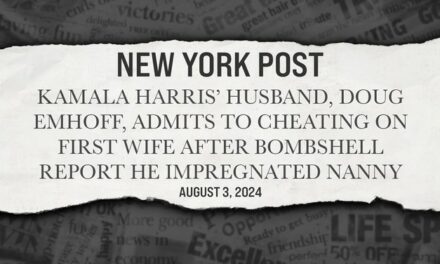We support our Publishers and Content Creators. You can view this story on their website by CLICKING HERE.
We’re just a few weeks away from the end of the 2024 Major League Baseball season and crowning another World Series champion. In the first few decades of the 20th century, that title went to one of the top two teams over the sports world’s longest regular season. Win the most games in the National League, and go directly to the World Series. Same with the American League.
Those days are long, long gone.
In the current playoff environment, the teams with the best records in their respective leagues now have to win two series just to get to the most important one. The inclusion of a sixth wild card team in 2022 has also given rise to the five-day layoff for those franchises that finish with the best regular-season records. In the first two postseasons with that framework, teams with a wild card round bye almost exclusively failed to advance. Sometimes in spectacular fashion.
It seemed like that would be the case in 2024 as well, with the Cleveland Guardians and Los Angeles Dodgers falling behind their division series opponents two games to one. Both won two straight to advance, and for the Dodgers, that meant facing the third consecutive sixth seed to make the championship series in the National League.
So what does this mean for the top seeds trying to win baseball’s ultimate prize? Spoiler alert: It’s really, really hard to avoid an upset.

Oct 9, 2024; New York, New York, USA; New York Mets shortstop Francisco Lindor (12) celebrates with teammates in the dugout after hitting a grand slam against the Philadelphia Phillies in the sixth inning in game four of the NLDS for the 2024 MLB Playoffs at Citi Field. Mandatory Credit: Brad Penner-Imagn Images
MLB’s Postseason Format Encourages Upsets, Chaos
Jayson Stark from The Athletic did an examination of what baseball’s new postseason format has meant for teams on both sides of the equation. Six seeds, teams that just a few years ago would have been on vacation in October, have now won 10 series in just three years. If the Mets advance against the Dodgers, it would make three consecutive seasons that the sixth seed in the NL would make the World Series.
The fifth seeds have been nearly as good. The Rangers team that won a title in 2023 was a fifth seed, the Padres took down the 111-win Dodgers in 2022, and Royals swept the Orioles in the wild card series in 2024. Overall, Stark found, the fifth and sixth seeds are 17-10 in their 27 playoff series since the expansion in 2022.
The top two seeds, by contrast, are just 9-8 in their 17 series, with four of those wins coming courtesy of the 2022 and 2023 Houston Astros. In the division series alone, after the five-day layoff, those 1-2 seeds are 6-6. Entering 2024 they were 3-6, and two of the three were the Astros.
As always, the gap between teams in the postseason is almost nonexistent. There can’t be “upsets” in October, because the sixth seed would win a best-of-five series nearly 50% of the time. Especially considering the seemingly beneficial momentum wild card series winning teams get heading into the next round.
According to Stark, the players union has already suggested a number of potential fixes to make the regular season matter more. All have been roundly rejected by MLB. Increasing the first round to seven games might make more sense, but even then, if the better team gives away home field advantage by splitting the first two games of a seven-game series, they go on to win just 36% of the time. Having the best record and hosting the first two games only matters if you win those first two games.
The owners clearly don’t care about the imbalance in incentives, where the best team over six months, a team that tried enough to win 105-110 games can get bounced in a matter of days by opponents that backed into 85-86 wins. Fans don’t care either…unless they’re unfortunate enough to root for the top teams in a sport that no longer cares about regular season success.
As we’ve seen in this year’s American League postseason, organizations have figured out that mediocrity can often be a recipe for success in October.
READ: American League Playoffs Are A Joke
If MLB wants to at least attempt to fix it, and it should, it could allow the top seed to host three consecutive games to start a series. Or give the top seeded teams a 1-0 advantage in a seven-game series. Otherwise, at some point, fans will start realizing that spending $150 per ticket, plus parking, plus food, plus merchandise, for a game in May that ultimately doesn’t matter is a bad sporting investment.

 Conservative
Conservative  Search
Search Trending
Trending Current News
Current News 





